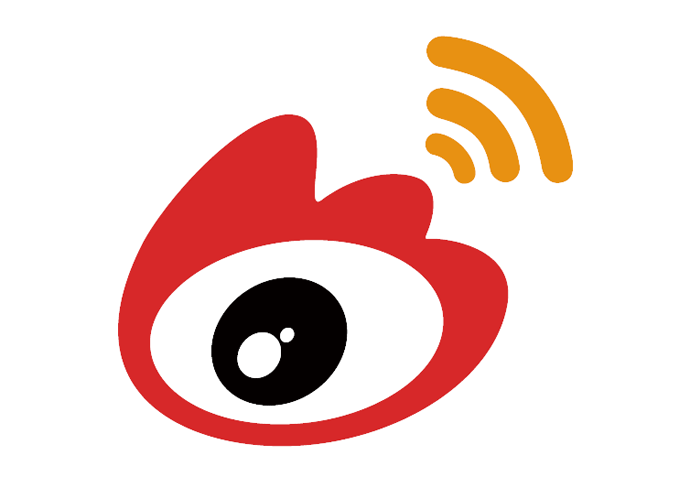The Confinement Tradition
An introduction to an ancient Chinese practice
The Mandarin-Chinese term Zuo Yue translates into English as "sitting out a month," which refers to the traditional Chinese custom of having new mothers rest for a month at home, often under the care of their mother-in-law, for a month after delivery.
During this period mothers were supposed to eat certain foods and herbs that, according to traditional Chinese medicine, are supposed to help with the mother's recovery. Unfortunately for the mothers, palatability and variety were secondary concerns and mother could find themselves suffering through weeks of the same herbal chicken soup.
During this period mothers were supposed to eat certain foods and herbs that, according to traditional Chinese medicine, are supposed to help with the mother's recovery. Unfortunately for the mothers, palatability and variety were secondary concerns and mother could find themselves suffering through weeks of the same herbal chicken soup.
Chinese is particularly concerns about postpartum care as they believe post-natal diets, if well-taken care of, can speed up womb recovery, replenish blood lost during delivery, strengthen the body and prevent post-natal health problem that may arise. The foods or ingredients are carefully selected and meticulously coupled to make a well-rounded and nutritious confinement dish to treat their post-natal period.
Benefits of confinement dishes:
1) nourish the blood and promote blood circulation
2) dispel postpartum 'wind' from the abdomen area ('wind' is left behind when placenta is exerted out) , warding off colds,
3) replenish qi', getting rid of blood stasis in the womb stimulating lactation
4) strengthen body resistance towards various ailments.
Major Ingredients:
Some common ingredients typically used in Chinese confinement recipes which are favored for their healing properties are, ginger, turmeric, galangal, sesame oil, Chinese herbs (such as Chinese Angelica Root, Chinese wolfberries, dates), pork and fish.
Healthy Easy Traditional Chinese Confinement Food Recipes
Healthy postpartum diet feature well-balanced foods which give the crucial inputs required during confinement. Chinese of different regional dialects observe their confinement practice and consume their postpartum diet differently, each with their own beliefs and uniqueness. Check out other articles about more traditional Chinese confinement food recipe.
Chinese confinement diet: 4 major taboos
- 1. Don't overdose on herbs and traditional supplements
- 2. Avoid cold foods
- 3. Caffeine and alcohol should be reduced. No nicotine
- 4. Avoid hot and spicy foods
According to the principles of traditional Chinese medicine, pregnancy, labour and birth are a huge drain on your energy reserves. A balanced diet with adequate nutrition during the one-month postnatal confinement period is vital to restore you to good health. This is particularly important because you now have the additional responsibilities of caring for your baby and breastfeeding her. Read more about the Chinese confinement diet.
However, this does not mean you can eat anything you want. In general, a traditional Chinese physician would advise that you note the following restrictions:
1. Don't overdose on herbs and traditional supplements
As a new mother, you need your general physical health restored during confinement (also known as the “lying-in” period). However, supplementing with herbs and traditional medicines cannot be generalised as everyone differs in physique, and the delivery process varies in each and every case. So you need to consult a qualified Chinese medicine physician or practitioner for a personalised recommendation on how to bring your body back into balance. Even the most popular herbal soup is not suitable for everyone; if he finds it necessary to supplement your confinement diet, he will adjust the dosage according to your physical condition.
If you had an uncomplicated delivery, and the labour was not too long, then you may not even need any further supplement, especially anything too potent. Just ensure you eat only nourishing foods.
Experts in Chinese medicine believe that in some cases, postnatal conditions can emerge that supplements cannot help or may even harm. Prolonged discharge (lochia) and pain in the lower abdomen, for example, can indicate a “stagnant” condition (a term usually used in relation to the flow of blood or energy) – in which case you should take no supplements at all. Similarly, a new mum may develop what Chinese physicians call an “internal heat” – a condition made worse by improper supplementing.
2. Avoid cold foods
A difficult pregnancy or long labour can leave you feeling drained, tired and weak. To help you recover, a traditional Chinese medicine physician may prescribe a mild supplement during the confinement period, but cold foods are strictly taboo. Even if your baby is born in hot weather, it is better to resist the temptation of cold drinks and dishes, especially anything straight out of the fridge.
This is because traditional Chinese medicine holds that a cold diet after giving birth can harm your spleen and stomach, and complicate your recovery. According to its theories, cold foods can prevent the proper discharge of dirty or toxic fluids from the body, leading to prolonged discharge (lochia). Therefore, cold foods after giving birth is a big taboo.
Here, the term “cold” refers not only to foods which are cold in their physical form, but also foods that are considered cold in nature (conversely, there are also foods which are considered “hot” or “heaty” in nature). Some practitioners have also described them as foods that have hot or cold “energy”.
Your pui yuet (confinement lady or confinement nanny) will know which foods are hot and cold, or you can check with a traditional Chinese medicine physician or practitioner. Briefly, foods that are considered cold in nature include:
Some meats
• duck egg (slightly cold in nature);
• some shellfish including crabs, clams and oysters;
• snails (very cold in nature);
• cuttlefish and octopus.
Some fruits
• persimmon, including dried persimmon;
• pomelo;
• bananas;
• mulberry;
• star fruit;
• fig;
• kiwi fruit;
• sugar cane (which, strictly speaking, is a type of grass);
• watermelon;
• musk melon (cantaloupe);
• waterchestnut.
Some types of vegetables
• kangkung;
• some edible fungus;
• brasenia;
• nostoc (an edible algae);
• bitter gourd;
• bamboo shoot;
• snake melon;
• kelp, laver and seaweed;
• hypericum (St Johns wort);
• some mushrooms;
• bitter gourd.
Finally, seasoning products such as soya sauce, noodle sauce and salt should not be taken (or at least, minimise your intake).
3. Caffeine and alcohol should be reduced. No nicotine
During the confinement period and for as long as you are breastfeeding, caffeine, alcohol and nicotine should be reduced or totally avoided.
Caffeine and alcohol can get into your breastmilk, so be sure not to take too much. Coffee, tea and colas all contain caffeine. Although one or two cups probably won’t do any harm, Chinese medicine physicians believe that anything more than that may make you feel impatient and nervous, and possibly make your baby restless or unable to sleep. If you are a habitual coffee drinker, consider reducing your intake or take decaf instead. Read more about caffeine and breastfeeding.
Nicotine can also get into your breastmilk, so it is best to abstain. Read more about what to avoid while breastfeeding.
If you have to take medication, tell your doctor that you are breastfeeding so that he can prescribe accordingly.
4. Avoid hot and spicy foods
Some breastfeeding mothers are sure that eating hot and spicy foods don’t cause any discomfort to their baby. If you really love hot and spicy food and can’t do without it, try a little at first. The level of discomfort caused by foods varies significantly in different babies. If a little beef curry or steamed fish seem to cause no reaction in your baby, feel free to indulge. However, should your baby react with any symptoms of discomfort, then it is best to stop.
Traditional Chinese physicians believe that hot and spicy foods can cause constipation, which, if it becomes a long-term condition, can affect the recovery of the uterus.




沒有留言:
張貼留言